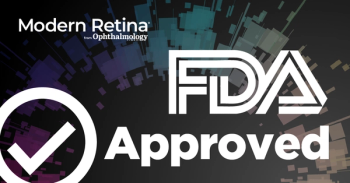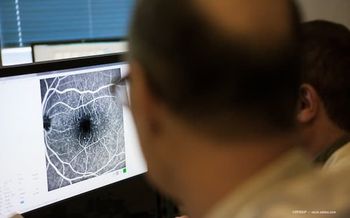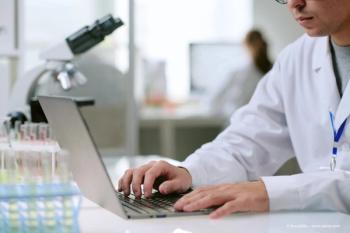
AEYE Health receives FDA clearance for first ever fully autonomous AI for portable DR screening
The diagnostic screening technology is able to diagnose diabetic retinopathy by using 1 image taken of each eye with over 99% imageability.
Artificial intelligence (AI) retinal imaging and diagnostics company AEYE Health has announced that it has received the first FDA clearance for a fully autonomous AI that diagnoses referable diabetic retinopathy (DR) from retinal images take by a handheld camera.1 The technology is particularly suited for point-of-care screening, which allows screenings to meet its patients where they are at, whether in clinic or at home, according to a news release.
"This is the 'holy grail' of eye screening – fully autonomous AI, using either portable or tabletop retinal cameras and a procedure that takes a minute to perform, alongside the best-in-class diagnostic efficacy," said Zack Dvey-Aharon, PhD, cofounder and CEO of AEYE Health, in the release. "In the coming years our fully autonomous screening technology will become standard across points of care in the US. We believe this innovation will prevent the blindness of millions of people in the US and around the world."
The FDA clearance is based on 2 large-scale prospective Phase 3 studies which assessed AEYE Diagnostic Screening (AEYE-DS) technology’s efficacy and imageability. According to the release, diagnostic sensitivity ranged from 92-93%, with specificity in the range of 89-94%. In both studies, almost 100% of patients received a diagnostic result. These results were produced by the AI using a single image from each eye and rarely required dilation.1 According to the release, this makes AEYE-DS the only solution that screens patients by using 1 image per eye at over 99% imageability.
"AEYE keeps working to expand the boundaries of diagnostic screening beyond diabetic retinopathy,” added Dvey-Aharon. “Our science is evidently the strongest in this space and we're proud to make such unbelievable impact."
The technology is commercially available with a tabletop imaging device, with screenings available by using the Optomed Aurora portable handheld device. Additionally, screening for DR with AI is now reimbursable in the US with the AI CPT code 92229 for autonomous screening.1 It also serves as a major HEDIS measure for more health plans, according to the release.
Tsontcho A. Ianchulev, MD, MPH, professor of ophthalmology at New York Eye and Ear of Mount Sinai and board member of AEYE Health, said, "This is perhaps the most exciting FDA clearance I've seen in the recent years. Such meaningful and impactful innovation – not only on the technology and clinical care front, but also for population health. A simple click without dilation right when you visit your primary care doctor, at the pharmacy or even at home, can instantly inform you about diabetic retinopathy. This can streamline care, reduce patient burden, and ultimately ensure exponential access to essential sight-saving service. Earlier systems have struggled because of efficacy, throughput, imageability, portability and need for dilation but we see a major leap forward technologically with this holy grail system that really has it all."
Reference:
FDA clears first fully autonomous AI for portable diabetic retinopathy screening. News release. PR Newswire. April 30, 2024. Accessed May 1, 2024.
https://www.prnewswire.com/news-releases/fda-clears-first-fully-autonomous-ai-for-portable-diabetic-retinopathy-screening-302131559.html?tc=eml_cleartime
Newsletter
Keep your retina practice on the forefront—subscribe for expert analysis and emerging trends in retinal disease management.



























